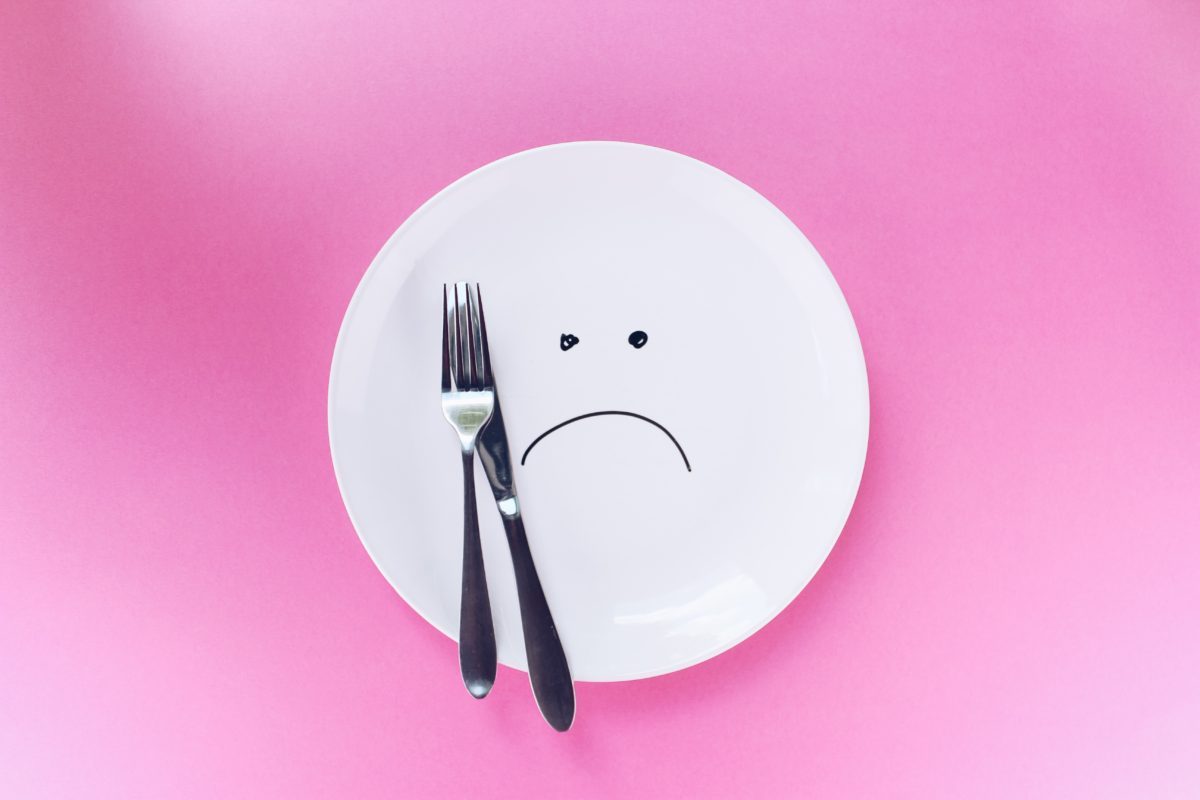Skipping Meals Can Do More Damage Than Good

Photo by Thought Catalog on Unsplash
Whether your rushing to school or work in the morning or working right through lunch throughout the day, it’s easy to lose track and miss a meal. But when you are missing meals regularly and intentionally, some concerns arise. Not only could continuously skipping meals lead to eating disorders, it definitely does more damage than good. Here’s what happens when your body does not get the nutrients it needs.
It impacts your ability to focus.
Did you know that skipping meals actually causes your blood sugar to drop? According to Kristin Kirkpatrick, RD, manager of wellness nutrition services at the Cleveland Clinic, “Your brain runs primarily on glucose. When there isn’t enough sugar in your blood to pull from, you lose your ability to focus.”
Carbohydrates like fruits, vegetables, and whole grains are some of the most nutritious sources of glucose, because they take loner to digest than refined carbs and are loaded with nutrients. Without a healthy supply of carbs, your blood sugar will dip really low, causing you to lose your focus.
It impact your mood.
Ever heard of the term “hangry”? Well, it turns out, because really hungry can actually impact your mood. In the same way a drop in your blood sugar can impact your ability to focus, it can also impact your mood. This is because constantly missing meals put your body in survival mode, triggering stress responses. Dr. McCallum explains, “You start to feel jittery and anxious, and your big picture thinking turns off. The flood of stress hormones translates into major outburst and deep depressions in situations where you’d normally just shrug it off.” Your hormones are also out of whack when you continuously skip meals. Hormones like ghrelin and leptin, which are appetite-inducing, can cause you to ramp up your hunger and impact your mood.
It increases your appetite and may lead to weight gain.
Obviously, if you miss a few meals, you’re going to be hungry. But when you deny your body food, it will only want more, making you overeat.
Ironically, missing meals can also increase your chances at gaining weight. If you are consistently missing meals and severely restricting yourself from good, not only will your body feel it, but your metabolism will be impacted. “Our bodies are programmed to survive at all costs. It dates back to the caveman days; if a caveman was in the forest and all his food ran out, his body would lower his metabolism so he wouldn’t need as many calories to stay alive.” Also, when you’re really hungry, what are the chances of you taking the time to make a healthy meal? You’ll most likely reach for heavy carbs or sweets that will raise your blood sugar, causing you to continue this damaging cycle again and again.
You’ll feel it on the inside, and look it on the outside.
“Any time you’re significantly reducing your calories, you’re depleting the essential nutrients you need to keep your hair shiny and your skin radiant”, says Kirkpatrick. So, not only will your body be feeling the effects on the inside, but you’ll also see the impact of skipping meals on the outside.
Feeling stuck in a cycle of dieting — or obsessing over every little food choice? You are not alone. Contact the National Eating Disorder Association’s Live Helpline at 800-931-2237 (Monday-Thursday from 9 a.m. – 9 p.m. EST; Friday from 9 a.m. – 5 p.m. EST) or via their site’s live chat. Someone will be there to offer support and guide you to the help you need.
Interested in learning about what your own specific nutritional needs are? Contact a certified nutritionist today for a free nutritional consultation. We have plenty available to help guide you on your nutritional journey!